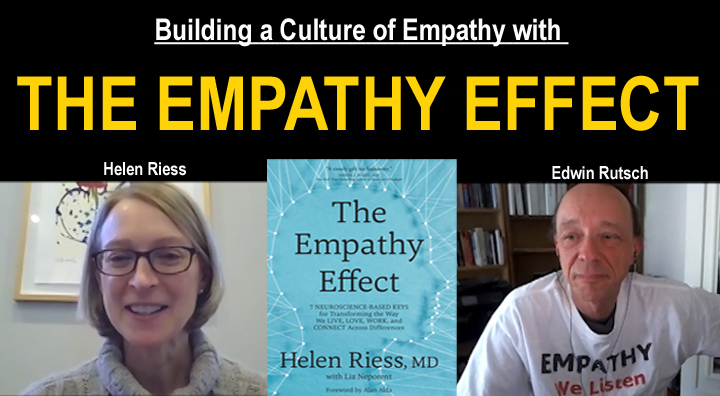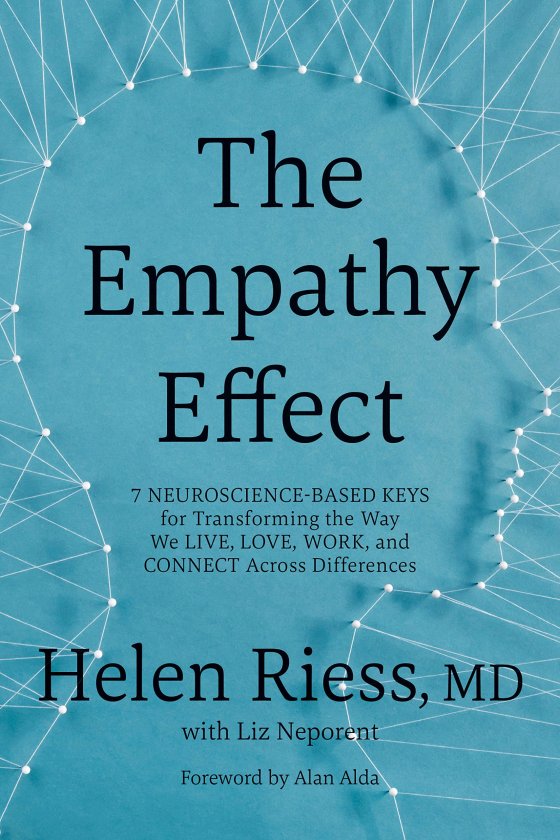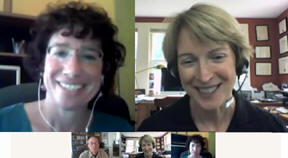|
|
|
Culture of Empathy Builder:
Helen Riess
Helen Riess, M.D. is Associate Clinical Professor of
Psychiatry,
Harvard Medical School and Director of the Empathy and Relational Science
Program at Massachusetts General Hospital.
Helen is author of
The
Empathy Effect: Seven Neuroscience-Based Keys for Transforming the Way We Live, Love, Work,
and Connect Across Differences.
"In this book, I hope to demonstrate how showing
greater empathy toward your fellow human beings can enhance your own life
and society as a whole.
Through empathy, parents see their
children for who they are, and help them realize their potential. Teachers connect with students in ways
that help learners discover and expand there talents.
Businesses are more likely to thrive because they invest in the people
working for them. Politicians start to represent the needs of their
constituencies.
The arts have always been a connector for
people of all walks of life to learn more about one another, find common
ground, inspire curiosity rather than judgment, and provide shared mind
empathic experiences that remind us that all people are part of the fabric
of humanity. "
Links
Empathy and Relational Science Program
Building a Culture of Empathy with The
Empathy Effect (See
on Youtube or on
FaceBook)
The
Empathy Effect
Forward by Alan Alda
Part 1
Chapter 1: Shared Mind Intelligence
Chapter 2: How Empathy Works...
Chapter 3: The Empathy Spectrum
Chapter 4: The Seven Keys of E.M.P.A.T.H.Y.
Chapter 5: Who's in , Who's Out... Part
2
Chapter 6: Growing Up with Empathy
Chapter 7: The ABCs of Empathy in Educations
Chapter 8: Texts, Screens, and Digital Empathy
Chapter 9: Empathy, Art and Literature
Chapter 10: Leaderships and Politics of Empathy
Chapter 11:
Digging Deep for Empathy
Chapter 12:
Self-Empathy
Clear+Vivid with Alan Alda
Can Empathy Be Taught? This Clinical Professor Has The Proof
August 31, 2018
Panel 24: Moving Medical Culture from Detachment to Empathy,
Edwin Rutsch,
Director of the Center for Building a Culture of Empathy, hosts a
discussion with two
Jodi
Halpern M.D., Ph.D, is Associate Professor of Bioethics and Medical
Humanities at the University of California, Berkeley, in the Joint
Medical Program and the School of Public Health. She is author of
From Detached Concern to Empathy: Humanizing Medical Practice.
Helen
Riess M.D., Ph.D is Associate Clinical Professor of Psychiatry,
Harvard Medical School and Director of the Empathy and Relational
Science Program at Massachusetts General Hospital. She is Chief
Technology Officer of
Empathetics
which offers scientifically based empathy training
proven to optimize interpersonal engagement.
The Baby in
the Well, the case against empathy' Response by Helen Riess & Edwin
Rutsch
Helen Riess & Edwin Rutsch: How to Build a Culture of Empathy in Health Care
| ||||||||||||||||








